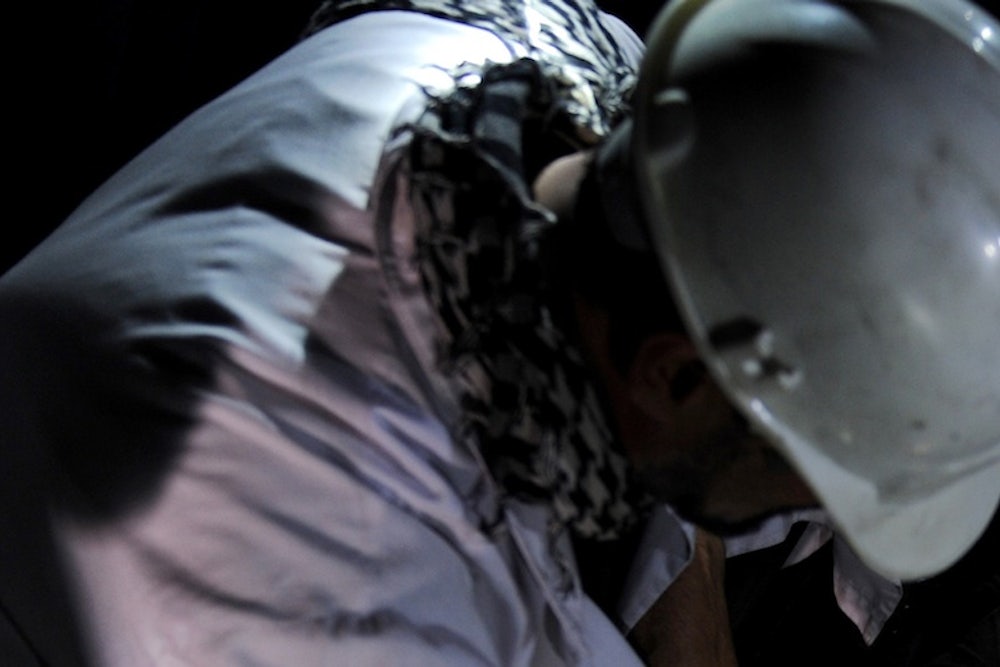Last winter, I wrote about the plight of thousands of retired coal miners and their dependents, who were on the verge of falling victim to what looked like a whole new level of corporate irresponsibility. In 2007, Peabody Energy, the largest coal company in the world, had spun off some of its coal assets and a whole lot more of its pension and retiree health care liabilities into a new company called Patriot Coal. It sure looked as if Patriot had been set up to fail, even more so after it was loaded up with liabilities deriving from another company, Arch Coal. And lo and behold, Patriot filed for Chapter 11 bankruptcy a few years later and, as part of that proceeding, sought to be unburdened of its pension and retiree health care obligations. This would leave some 20,000 retired miners and their dependents, many of them with serious health problems and not all of them yet of Medicare-eligible age, at risk of losing their coverage. Among them was Larry Knisell, a 63-year-old who worked 27 years for Peabody as a shuttle-car operator in its West Virginia mines. He takes 21 pills per day for, among other things, high blood pressure, Type 2 diabetes and post-traumatic stress disorder from the Vietnam War. He has a backup to his Peabody coverage—he can use the nearest Veterans Administration hospital—but his wife relies on his Peabody coverage to cover treatments for her fibromyalgia. “All [his fellow miners] wanted was what they had coming to them in the end, and Peabody pulls the rug out from under them,” he told me. “It’s 'we’ve gotten all we’re going to get out of you guys, and you’re no more use to us now than a broken tool.'”
In May, a judge in St. Louis, where Peabody is based, approved Patriot’s request to offload $1.5 billion in retiree health obligations, finding that the circumstances of Patriot’s creation by Peabody were not “relevant” to the case. It was looking pretty grim for the miners. But then came a sudden flash of sunlight at the top of the proverbial shaft: a grand agreement announced earlier this month by the United Mine Workers of America, Peabody and Patriot. Under the settlement, the retiree’s health care benefits will be shifted into a Voluntary Employee Benefit Association (VEBA) that will be funded with $400 million over the next four years, including $310 million from Peabody, in exchange for the union giving up its equity stake in Patriot. The deal helps put Patriot on track to exist without going into bankruptcy by year’s end. It doesn’t completely solve the problem of guaranteeing the retiree benefits—the union is hoping to get legislation through Congress that would extend the federal Coal Act, intended for miners retired from companies that have since gone out of business, to the Patriot retirees who are currently not covered by it, as a backstop—but it’s much better than what the retirees were facing just a few months ago.
So what gives? Why the relatively happy ending in a time when so few labor-management disputes end well for workers? I checked with both the union and Peabody to find out more. But no dice, they’re not commenting. In fact, their settlement decrees that they not comment. On page 11 of the exhibits attached to the settlement is a “non-disparagement clause” requiring that the parties “will not make or cause or encourage others to make statements, written or oral, concerning the settlement or any of the disputed claims resolved by the settlement except to say that the settlement is a (acceptable/good/satisfactory/sound/significant, or words of similar import) resolution for the estate of the matters encompassed by the settlement.” It further bars any of the parties against "defaming, disparaging or criticizing the reputation, practices or conduct of the other party...in relation to the Spinoff, the Chapter 11 case..."
While non-disparagement clauses are not unheard-of, the specificity of this one is pretty striking. And it strongly suggests a likely theory for Peabody’s decision to settle this dispute: public relations. The one weapon that the overmatched union had to use against the company—public shaming—it used to its utmost. There were repeated protests in West Virginia and outside the company’s headquarters in downtown St. Louis, some with 5,000 people or more, enough in one instance to completely encircle the building. The company, which usually holds its annual meeting in St. Louis, was forced to move it to Wyoming, and protesters even followed executives there. And worker protests were popping up elsewhere, too, including in Australia, home of some Peabody operations and the company’s new chief financial officer. Granted, plenty of companies have proven immune to protests in the past, but it’s not inconceivable that the sheer brazenness of the tactic at issue here—a corporation with $2 billion in annual revenues offloading retirees benefits into a new entity that was expected to collapse under the weight—was simply too extreme to defend even in today’s anything-goes climate. Peabody may also have decided that a Patriot bankruptcy would end up proving more costly than expected—environmental liabilities, for one, may have rebounded onto Peabody.
But we’ll never know for sure. All we can do is declare the settlement acceptable/good/satisfactory/sound/significant. And take from it this commentary on the state of today’s beleaguered unions: They can still win now and then if they speak up loudly for their own interests—and are then prepared to hush right up when the moment of grudging and partial victory arrives.
